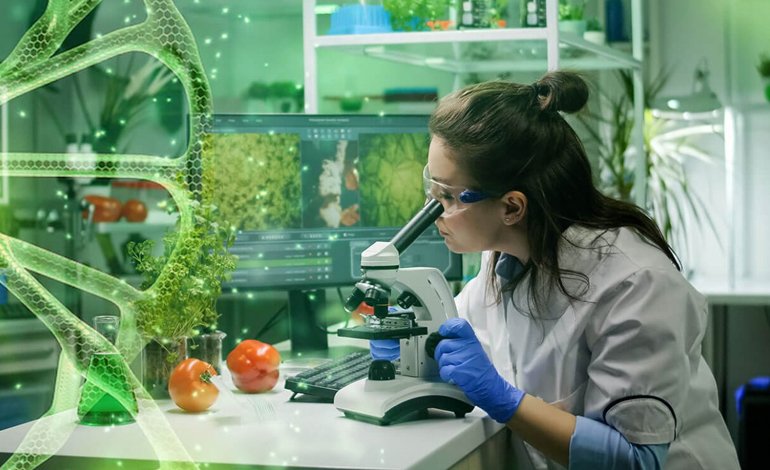Have any Questions?
+0 123 888 555MSc in Biotechnology is a two-year postgraduate degree programme in the field of Science. Immunology, Environmental Biotechnology, Advanced Biological Chemistry, Molecular Biology, and Animal Biotechnology are among the topics covered in the course.

About Courses Overview
Core Subjects: Students typically study core subjects such as Cell Biology, Genetics, Biochemistry, Microbiology, Molecular Biology, Immunology, Biostatistics, and Bioinformatics.
Laboratory Work: Practical laboratory work is a crucial component of the program, where students learn techniques such as DNA sequencing, PCR (Polymerase Chain Reaction), genetic engineering, and protein purification.
Elective Courses: Depending on the curriculum, students may have the opportunity to choose elective courses in specialized areas such as Plant Biotechnology, Animal Biotechnology, Environmental Biotechnology, and Medical Biotechnology.
Project Work: Many programs require students to undertake a research project or internship in their final year, providing hands-on experience and exposure to real-world biotechnology applications.
Career Opportunities:
Research Scientist: Graduates can work in research laboratories conducting experiments, analyzing data, and contributing to scientific discoveries in areas such as drug development, genetic engineering, and disease diagnostics.
Biotechnologist: They can work in biotechnology companies involved in pharmaceuticals, agriculture, food processing, and environmental remediation, where they may be involved in product development, quality control, and process optimization.
Bioinformatician: With expertise in bioinformatics, graduates can analyze biological data using computational tools and algorithms to derive insights into genomics, proteomics, and drug design.
Clinical Laboratory Technician: They can work in clinical laboratories performing diagnostic tests, analyzing samples, and assisting in medical research.
Quality Control Analyst: Graduates can work in quality control departments of biotechnology and pharmaceutical companies, ensuring that products meet regulatory standards and quality specifications.
Environmental Biotechnologist: They can work in environmental agencies or consulting firms, developing solutions for pollution control, waste management, and environmental conservation.
Entrepreneur: Graduates with an entrepreneurial spirit can start their own biotechnology ventures, developing innovative products or services in areas such as personalized medicine, agricultural biotechnology, or bioprocessing.

